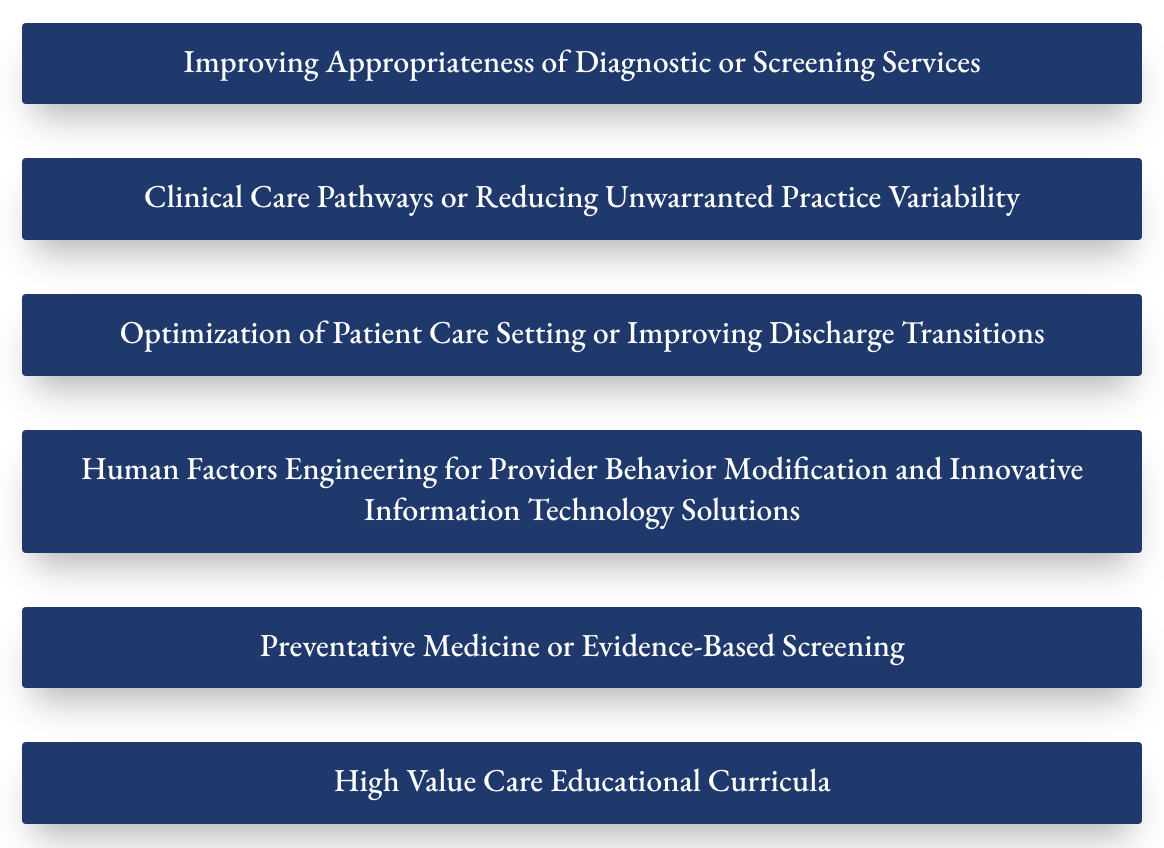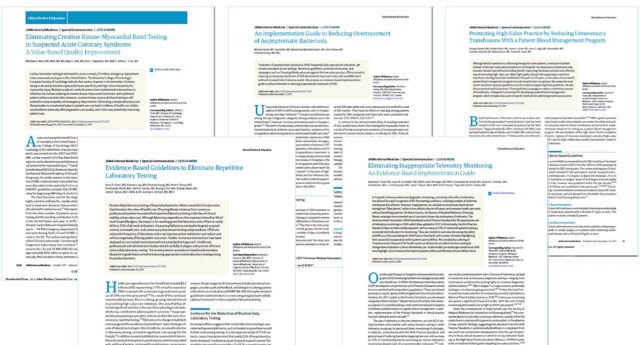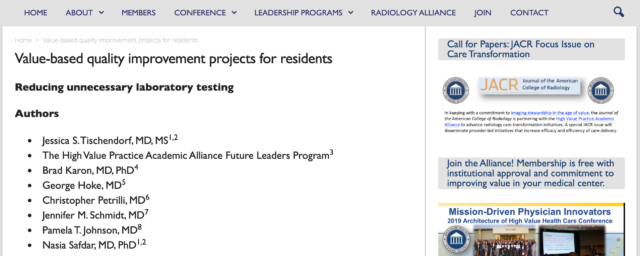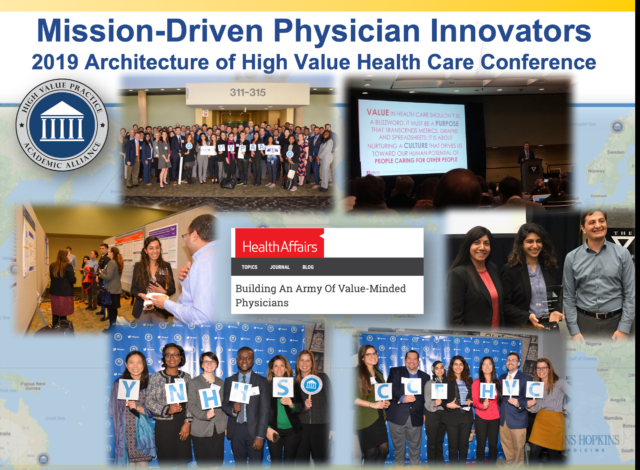From the 2019 HVPAA National Conference
Dr. Amber Moore (Beth Israel Deaconess Medical Center), Dr. Jason Lewis (Beth Israel Deaconess Medical Center), Dr. Josh Allen-Dicker (Beth Israel Deaconess Medical Center), Dr. Brian Powers (Beth Israel Deaconess Medical Center), Dr. Amy Sullivan (Beth Israel Deaconess Medical Center), Dr. Katharyn Meredith Atkins (Beth Israel Deaconess Medical Center), Dr. Grace Huang (Beth Israel Deaconess Medical Center)
Background
Medical costs in the United States continue to rise without associated improvements in quality, necessitating a focus on high value care (HVC) in modern medical education and clinical practice. While curricula exist for education in HVC, they are often targeted to one specific group of learners. We believe a comprehensive curriculum in HVC is essential to improving high value practices across an institution. To our knowledge, no such intervention has been published.
Objective
To implement a comprehensive curriculum in HVC for a wide spectrum of learners, supported by faculty development in principles of HVC.
Methods
We developed and implemented a coordinated three-component HVC curriculum for students, residents and faculty:
- Elective for medical students in their core clinical year: We taught foundational principles in costs of care, critical thinking and methods for determining relative value in daily medical practice. Core lectures were supplemented by discussions with institutional leaders in HVC.
- Longitudinal curriculum for internal medicine residents: Via small group discussions and lectures we addressed concepts including clinical reasoning/Bayes theorem, foundations in costs of care, and eliminating waste and over-ordering.
- Faculty development program for core clinical educators:We implemented a series of multi-departmental physician development sessions targeted at core faculty, using case-based examples, videos and breakout sessions, centered on the 5 micro-skills of teaching value (an adaptation of the 1-minute preceptor[i]).
Results
Our curriculum has reached 30 faculty members, 28 students and greater than 100 residents. 18 faculty answered the post-workshop feedback survey; the majority felt that objectives were met (Table 1). In one year of the elective, 21 students enrolled and 66% completed the post-course feedback survey. 62% of students in the elective reported that they left the course with a better understanding of systems and payment, 71% reported that they were better able to identify instances of low value care and develop interventions to improve value, 77% felt that they were better prepared to practice HVC after taking the elective, and 72% would recommend the course to other students. Evaluation of the resident component of the curriculum is ongoing.
Conclusions
A comprehensive curriculum in HVC is essential to improving high value practices across an institution. Our curriculum effectively empowered faculty to teach HVC and empowered students to practice HVC.
Clinical Implications
While clinical outcomes were not evaluated, improving knowledge around HVC practices across learner groups and providing faculty with tools to teach HVC has the potential of improving quality and decreasing costs of care.
This work has not been previously presented or published.
[i]Neher J, Gordon K, Meyer B, Stevens N. A five-step “microskills” model of clinical teaching. Journal of American Board of Family Practice, 1992; 5: 419-424.
Figures








